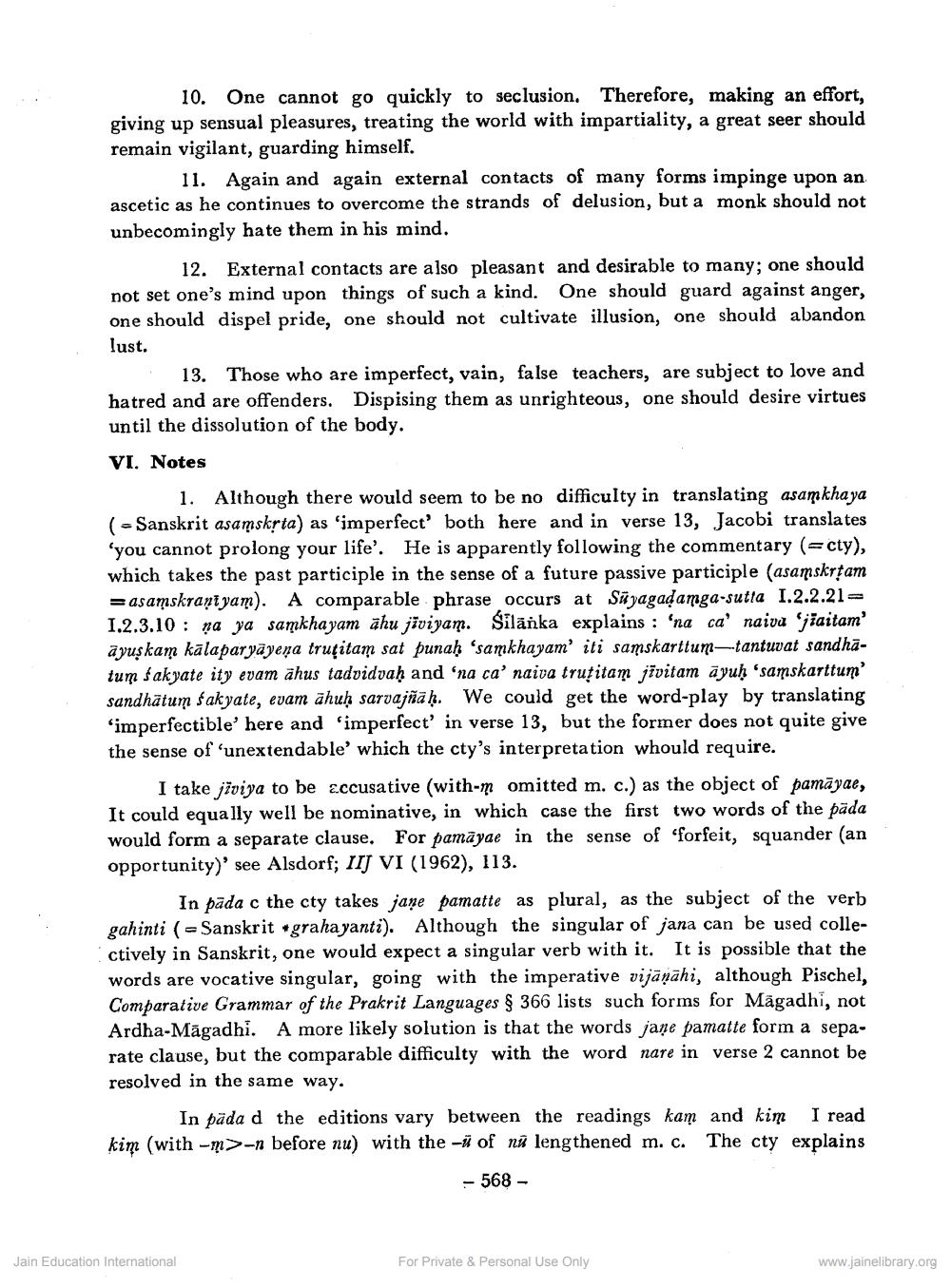________________
10. One cannot go quickly to seclusion. Therefore, making an effort, giving up sensual pleasures, treating the world with impartiality, a great seer should remain vigilant, guarding himself.
11. Again and again external contacts of many forms impinge upon an ascetic as he continues to overcome the strands of delusion, but a monk should not unbecomingly hate them in his mind.
12. External contacts are also pleasant and desirable to many; one should not set one's mind upon things of such a kind. One should guard against anger, one should dispel pride, one should not cultivate illusion, one should abandon lust.
13. Those who are imperfect, vain, false teachers, are subject to love and hatred and are offenders. Dispising them as unrighteous, one should desire virtues until the dissolution of the body. VI. Notes
1. Although there would seem to be no difficulty in translating asamkhaya (Sanskrit asamskrta) as 'imperfect both here and in verse 13, Jacobi translates 'you cannot prolong your life'. He is apparently following the commentary (=cty), which takes the past participle in the sense of a future passive participle (asamskrtam = asamskraniyam). A comparable phrase occurs at Süyagadamga-sutta I.2.2.21= 1.2.3.10 : na ya samkhayam ahu jūviyam. Silānka explains : 'na cal naiva 'jiaitam' ayuş kam kālaparyāyeņa truţitam sat punaḥ 'samkhayam' iti samskarttum-tantuvat sandhatum s akyate ity evam āhus tadvidvaḥ and 'na ca' naiva trufitam jūvitam āyuh 'samskarttum' sandhātum Śakyate, evam āhuḥ sarvajñaḥ. We could get the word-play by translating 'imperfectible' here and 'imperfect' in verse 13, but the former does not quite give the sense of 'unextendable' which the cty's interpretation whould require.
I take jiviya to be accusative (with-m omitted m. c.) as the object of pamāyae, It could equally well be nominative, in which case the first two words of the pada would form a separate clause. For pamāyae in the sense of 'forfeit, squander (an opportunity)' see Alsdorf; IIJ VI (1962), 113.
In pada c the cty takes jane pamatte as plural, as the subject of the verb gahinti (-Sanskrit .grahayanti). Although the singular of jana can be used collectively in Sanskrit, one would expect a singular verb with it. It is possible that the words are vocative singular, going with the imperative vijāņāhi, although Pischel, Comparative Grammar of the Prakrit Languages $ 366 lists such forms for Māgadhi, not Ardha-Māgadhi. A more likely solution is that the words jane pamatte form a separate clause, but the comparable difficulty with the word nare in verse 2 cannot be resolved in the same way.
In pada d the editions vary between the readings kam and kim I read kim (with->-n before nu) with the 7 of nu lengthened m. c. The cty explains
- 568 -
Jain Education International
For Private & Personal Use Only
www.jainelibrary.org




